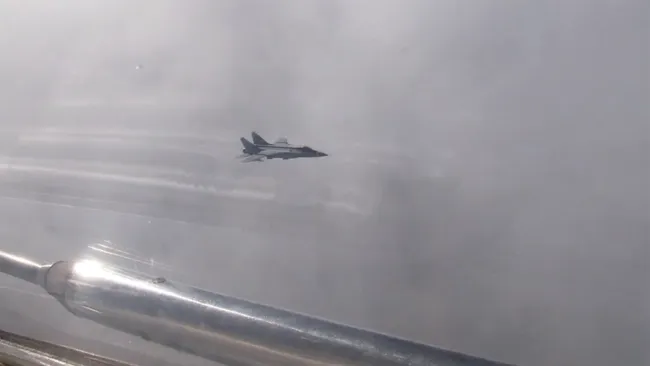The German military has launched an investigation into a suspected poisoning incident at an important base near Cologne.
The Bundeswehr barracks in Cologne-Wahn were completely isolated from the rest of the base on Wednesday, after German counterintelligence services opened an investigation into a suspected break-in that resulted in a sabotaged water supply.
According to a statement from German Territorial Command, guards found a hole in the base's fence near the water-processing plant of the barracks on Wednesday morning, leading to a search of the premises, which didn't reveal any trespassers. There is currently no indication as to who broke into the base and what their motives were.
Territorial Command said that "the water supply was interrupted as the drinking-water system showed unusual values," and it banned soldiers and civilians from using the water under any circumstances in internal communications, according to German news outlet Spiegel.
The site, which houses 4,300 soldiers and over a thousand civilian employees, was reopened in the afternoon after the search concluded. The base houses military aircraft used for travel by German Chancellor Olaf Scholz and other government representatives.
Following the break-in, troops stationed at the base have been asked to approach "unknown persons within sight" and to report "any suspicious behavior."
The base remains a significant part of Germany's support for Ukraine in its war against Russia. Ukrainian soldiers who were trained in Germany regularly arrive and depart from the air base, reaching Ukraine via flights to Poland.
Germany has remained one of Europe's largest supporters of Ukraine in the conflict. Yesterday, it gave the all-clear for Ukraine to use weapons and equipment provided by the key NATO member as part of its Kursk offensive.
Earlier this year, German officials announced a $542 million arms package for Ukraine, which included ammunition for an IRIS-T air-defense system, used to counter Russian air strikes.
In May, German Defense Minister Boris Pistorius specified that Germany "will continue to support [Ukraine] in this defensive campaign."
Other support for Ukraine from NATO members includes a $618 million package from the United Kingdom, primarily precision-guided missiles and combat vehicles, and a bilateral security agreement between Spain and Ukraine that has supplied Leopard tanks to the front lines.
Do you have a story we should be covering? Do you have any questions about NATO and Germany's foreign policy? Contact LiveNews@newsweek.com.
Disclaimer: The copyright of this article belongs to the original author. Reposting this article is solely for the purpose of information dissemination and does not constitute any investment advice. If there is any infringement, please contact us immediately. We will make corrections or deletions as necessary. Thank you.



